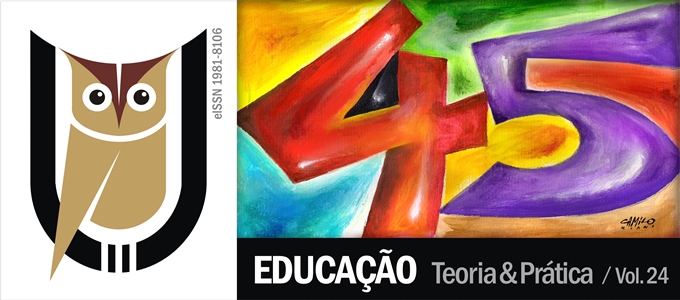Changes of a crystallized look the educators for their students.
DOI:
https://doi.org/10.18675/1981-8106.vol24.n45.p03-22Keywords:
Sex. Gender. Stereotypes. School. Sexuality.Abstract
This article aims to investigate the conceptions of masculine and feminine gender present in the speech of male and female teachers of an elementary school in the city of São Paulo and analyze the perceptions and the stereotypes present in their speech about their students. To this end, this article investigates and presents the concepts of male and female, presented in the teacher’s speech to characterize men and women, checking how these conceptions appear when the teachers have to point the characteristics of their students. To carry out the research instruments were used to provide a qualitative approach (Likert scale and semi-structured interviews) in order to see in the answers, statements and postures of the different evidences of the way they represent and relate their students on gender issues. The research finds at first, if there are differences in perception of educators on their students related to their gender and which are these differences. Thus, the search finds in the speeches of the educators, the role of the school as an institution forming not only academic knowledge, but also concepts, prejudices, assumptions and values in the students.Downloads
Additional Files
Published
How to Cite
Issue
Section
License
Authors who publish in this journal agree to the following terms:
a) Authors assign copyright to the journal, with the work simultaneously licensed under the Creative Commons Attribution License that allows sharing of the work with acknowledgment of authorship and publication in this journal.
b) The policy adopted by the Editorial Committee is to assign copyright only after a period of 30 months from the date of publication of the article. After this time, authors interested in publishing the same text in another work must send a letter to the Editorial Committee requesting the release of the assignment of copyright and wait for a response.
c) This journal provides public access to all its content, since this allows greater visibility and reach of published articles and reviews. For more information on this approach, visit the Public Knowledge Project, a project that developed this system to improve the academic and public quality of research, by distributing OJS as well as other software to support the public access publication system to academic sources. The names and email addresses on this website will be used exclusively for the purposes of the journal and will not be available for other purposes. This journal provides open any other party  This work is licensed under a Creative Commons License
This work is licensed under a Creative Commons License











